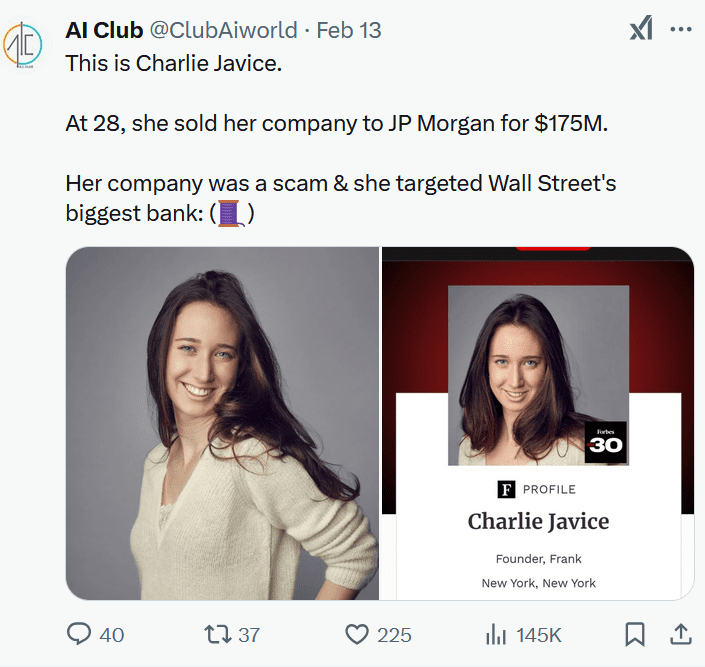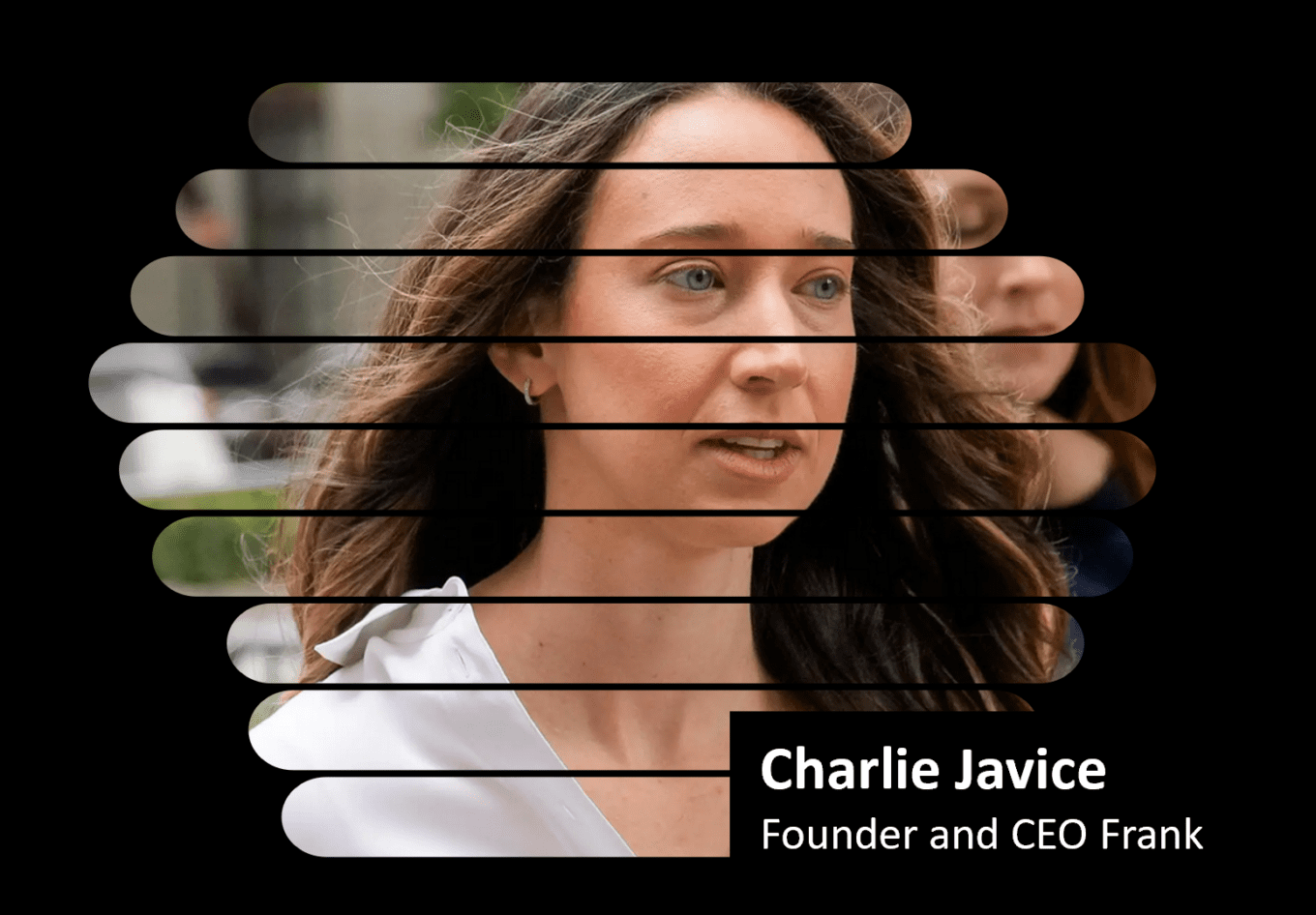Charlie Javice, the once-celebrated wunderkind behind the FinTech startup Frank, now finds herself in the dock, accused of orchestrating a “massive fraud” that duped JPMorgan Chase & Co. into a $175 million takeover bid in 2021. The trial, unfolding in a Manhattan federal courtroom as of February 2025, paints a picture of a Silicon Valley fairy tale gone sour—a tale of inflated numbers, fabricated data, and a bank crying foul after a deal turned disastrous.
The House of Cards
Assistant U.S. Attorney Rushmi Bhaskaran didn’t mince words in her opening salvo to the jury, alleging that Javice and a fellow Frank executive peddled a lie so audacious it could rival a Hollywood script: claiming millions of customers when the reality was a measly 400,000 or so in the summer of 2021. The prosecution says Javice didn’t just fudge the numbers—she built a house of cards, propped up by “off-the-shelf data” bought from a college pal, all to seal the deal with the nation’s largest bank.
The Buyer’s Remorse
But here’s where the plot thickens, and the finger-pointing gets downright Shakespearean. Javice’s attorney, Jose Baez, isn’t buying the prosecution’s narrative of a scheming mastermind. Instead, he’s spinning a counter-tale of corporate greed and regret, pinning the blame squarely on JPMorgan itself. According to Baez, this isn’t fraud—it’s “buyer’s remorse” dressed up as a criminal case.
He argues that JPMorgan, eager to snatch up Frank’s promise of tapping into the lucrative student market, rushed the deal in a mere 22 business days, only to balk when new federal regulations shifted the financial aid landscape, rendering their shiny new acquisition a dud. Fraud, Baez contends, was the only escape hatch in the contract, and now they’re out to “destroy a life” to save face. It’s a provocative twist: Is Javice the villain, or is JPMorgan the real con artist here, playing the victim to dodge accountability for its own haste?
The Theranos Case
Javice isn’t the first startup poster child to face the music for investor fraud—she’s following in the infamous footsteps of Elizabeth Holmes, the disgraced Theranos founder whose blood-testing empire crumbled under scrutiny. Holmes, convicted in 2022 on four counts of fraud for misleading investors about her company’s capabilities, was sentenced to over 11 years in prison. Her tale of fabricated tech and dazzling promises ended in a San Jose courtroom, a cautionary saga of Silicon Valley’s “fake it till you make it” ethos run amok.
Recently, in December 2024, a federal appeals court upheld her conviction, rejecting her claims of trial errors and cementing her status as a cautionary tale. Now, Javice steps into the spotlight as the second act in this drama of entrepreneurial hubris, her fate hinging on whether jurors see her as a cunning fraudster or a scapegoat for a bank’s blunder.
The Conclusion
The prosecution’s case is juicy: they allege Javice didn’t just exaggerate—she outright fabricated customer data, paying $18,000 to a data scientist to conjure up 4 million fake profiles when JPMorgan demanded proof of Frank’s user base. The deal closed, Javice pocketed millions, and all seemed well—until JPMorgan tried marketing to those “customers” and found 70% of their emails bouncing back like bad checks.
Bhaskaran calls it a “house of cards” that inevitably collapsed, turning Javice and her co-defendant Olivier Amar into multimillionaires on a foundation of lies. Yet Baez fires back with a jab at JPMorgan’s due diligence—or lack thereof. If the bank’s so sophisticated, how’d they miss this? Were they so blinded by the allure of young, cash-strapped clients that they skipped the fine print? It’s a question that cuts to the core: Who’s really at fault when a deal this big goes bust?
The X Discussion

This trial isn’t just about Javice—it’s a referendum on the startup hype machine and the Wall Street giants who fuel it. Posts on X echo the skepticism: some call her a scammer who targeted a gullible bank, others see JPMorgan as a bully crying over spilled milk. Like Holmes before her, Javice’s story challenges the myth of the infallible founder and the infallible institution. Holmes’ verdict was a reckoning for investors who bought the dream; Javice’s could be a wake-up call for banks who bet big without looking under the hood.
As the jury deliberates, one thing’s clear: whether she’s guilty or not, the fallout from this $175 million gamble will reverberate far beyond the courtroom, exposing the thin line between ambition and deception in the high-stakes game of fintech.





